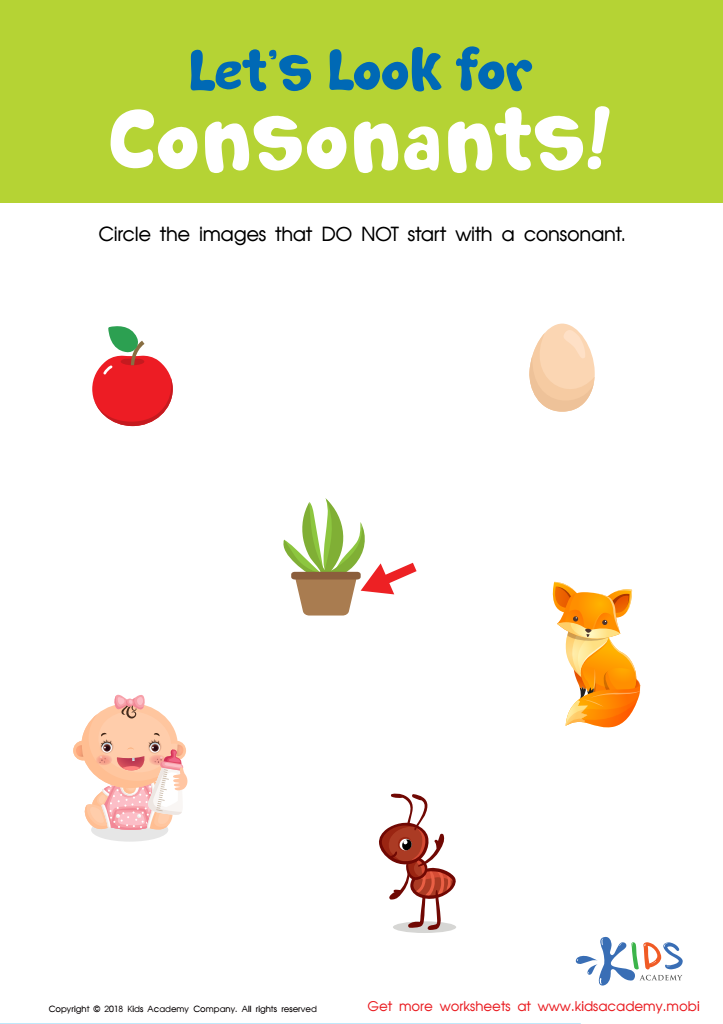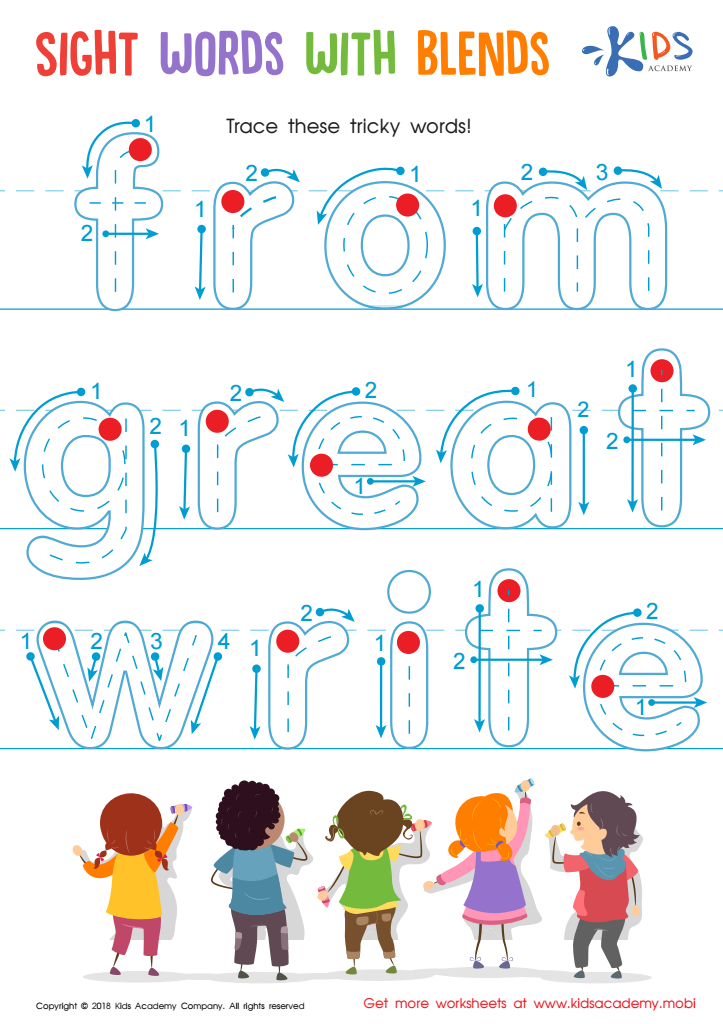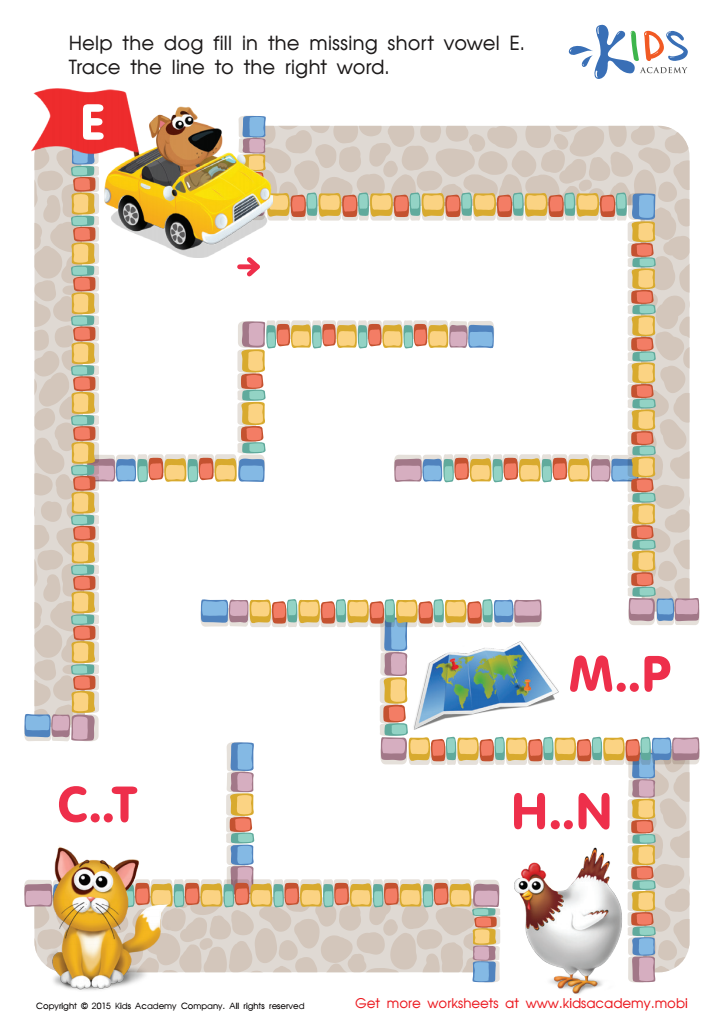Spelling practice Letter Recognition Worksheets for Ages 4-9
4 filtered results
-
From - To
Unlock your child’s potential with our Spelling Practice Letter Recognition Worksheets designed for ages 4-9. These engaging, print-at-home resources make learning fun and effective. Young learners will strengthen their letter recognition and spelling skills through a variety of activities, from tracing and matching to word games and puzzles. Perfect for early readers, these worksheets build a strong literacy foundation while keeping kids motivated. Equip your child with the essential skills needed for reading and writing success. Visit Kids Academy to download our free worksheets and open the door to endless educational adventures!


Let's Look for Consonants Worksheet


Short Vowels /e/, /i/, and /u/ Worksheet


Sight Words with Blends Worksheet


Short Vowel Sound E Worksheet
Parents and teachers should care deeply about spelling practice and letter recognition for children aged 4-9 because these foundational skills are crucial for literacy development. During these early years, children's brains are exceptionally receptive to learning new information, making it the ideal period to introduce these concepts.
Letter recognition is the first step toward reading and writing, allowing children to understand that each letter has a specific shape, name, and sound. Mastering this skill helps children decode words and begin to read more fluently. As they become more comfortable with letters, they can start to form words and spell them correctly. Spelling practice reinforces the connection between phonetics and written language, helping to solidify their understanding of how words are constructed.
Moreover, proficiency in spelling and letter recognition has a ripple effect on other aspects of education. It enhances vocabulary development, reading comprehension, and writing skills. Children who are strong spellers tend to perform better in school generally because they are more confident in their abilities and less distracted by decoding words.
Finally, fostering these skills also boosts children's self-esteem and fosters a love for learning, two essential elements for lifelong educational success. Early investment in spelling and letter recognition sets the stage for academic achievements and effective communication in later years.

 Assign to My Students
Assign to My Students




















